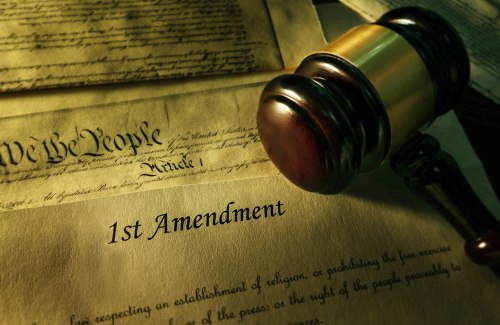SCOTUS will consider free speech damages in case of evangelizing college student

Image from Shutterstock.com.
The U.S. Supreme Court agreed on Thursday to decide whether an evangelizing college student may receive nominal damages from a state college for an alleged free speech violation that happened under a policy that has since been discarded.
Georgia student Chike Uzuegbunam twice tried to distribute religious literature at the Georgia Gwinnett College, according to his cert petition.
The first time he was stopped because he was outside one of two tiny zones on campus where “free speech expression” was allowed. A second time, he was stopped because of a person’s complaint.
A college speech code then in effect said students could be found guilty of disorderly conduct if they engage in public speech that “disturbs the peace and/or comfort” of citizens.
The Alliance Defending Freedom filed the cert petition on behalf of Uzuegbunam and a second student who self-censored himself after seeing how Uzuegbunam was treated. A press release is here.
The university changed its speech policies after the lawsuit was filed. At issue is whether the policy change moots a claim for nominal damages.
The 11th U.S. Circuit Court of Appeals at Atlanta ruled that the request for nominal damages is moot. It is the only circuit holding that, absent compensatory damages, government officials are never liable for violating constitutional rights if they change their policy after being sued.
“Without nominal damages, bureaucrats can trample constitutional freedoms, then deprive citizens of a way to vindicate their rights,” the cert petition says. “The 11th Circuit’s rule slams the door on many civil-rights plaintiffs and makes future challenges less likely.”
Six circuits allow nominal damages despite a policy change, while two other circuits ban damages if the government changes a policy that was never enforced against the plaintiff.
The case is Uzuegbunam v. Preczewski.
Write a letter to the editor, share a story tip or update, or report an error.


